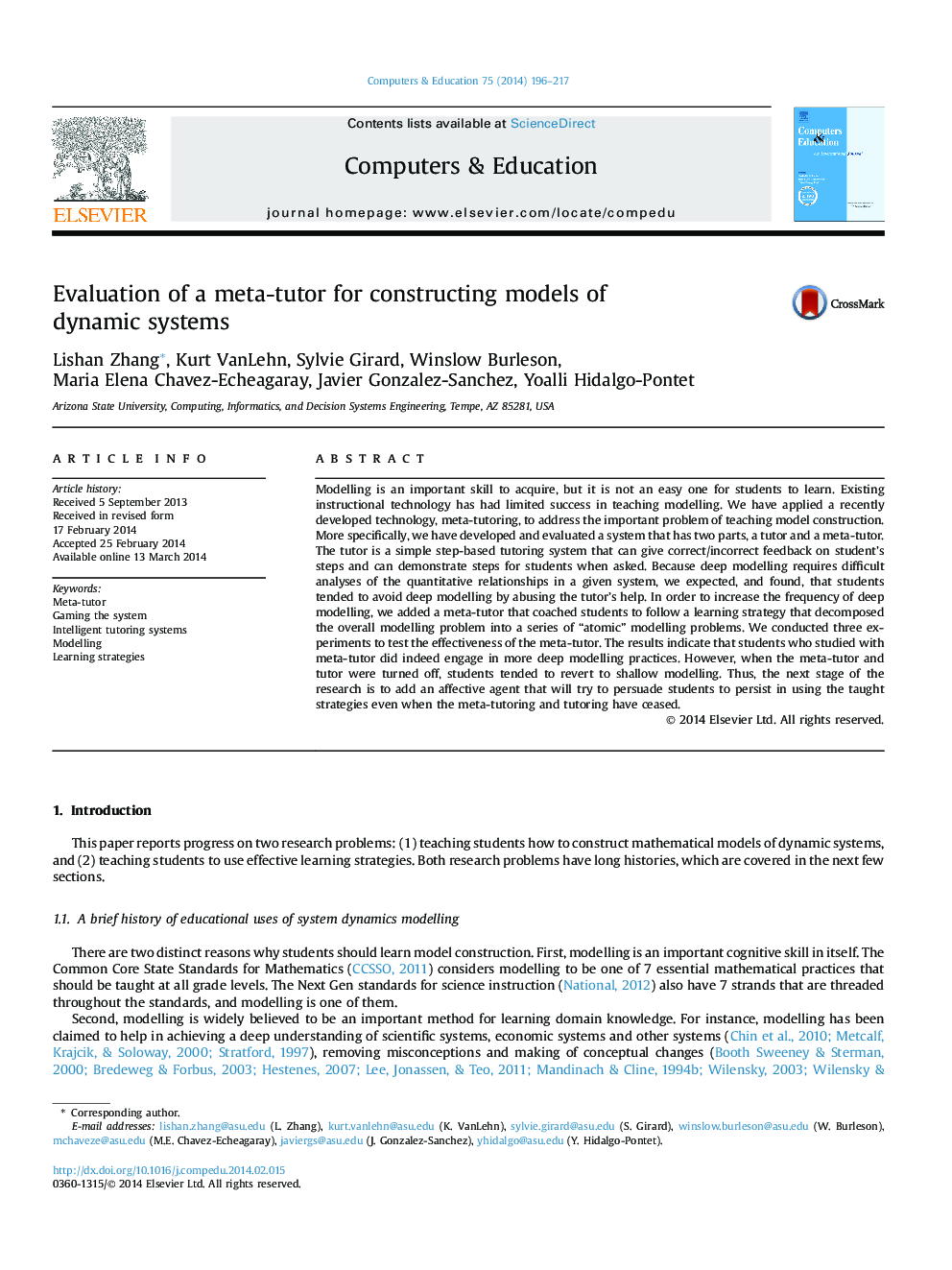| Article ID | Journal | Published Year | Pages | File Type |
|---|---|---|---|---|
| 348424 | Computers & Education | 2014 | 22 Pages |
•The meta-tutor led to students' deep system modelling behaviours when it turned on.•Students showed some signs of deep system modelling behaviours when the meta-tutor was off.•The meta-tutor didn't lead to an observed greater learning gain.
Modelling is an important skill to acquire, but it is not an easy one for students to learn. Existing instructional technology has had limited success in teaching modelling. We have applied a recently developed technology, meta-tutoring, to address the important problem of teaching model construction. More specifically, we have developed and evaluated a system that has two parts, a tutor and a meta-tutor. The tutor is a simple step-based tutoring system that can give correct/incorrect feedback on student's steps and can demonstrate steps for students when asked. Because deep modelling requires difficult analyses of the quantitative relationships in a given system, we expected, and found, that students tended to avoid deep modelling by abusing the tutor's help. In order to increase the frequency of deep modelling, we added a meta-tutor that coached students to follow a learning strategy that decomposed the overall modelling problem into a series of “atomic” modelling problems. We conducted three experiments to test the effectiveness of the meta-tutor. The results indicate that students who studied with meta-tutor did indeed engage in more deep modelling practices. However, when the meta-tutor and tutor were turned off, students tended to revert to shallow modelling. Thus, the next stage of the research is to add an affective agent that will try to persuade students to persist in using the taught strategies even when the meta-tutoring and tutoring have ceased.
